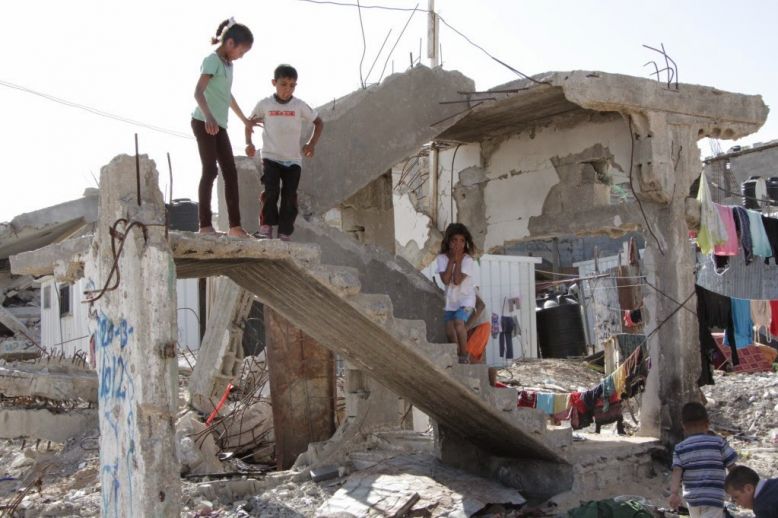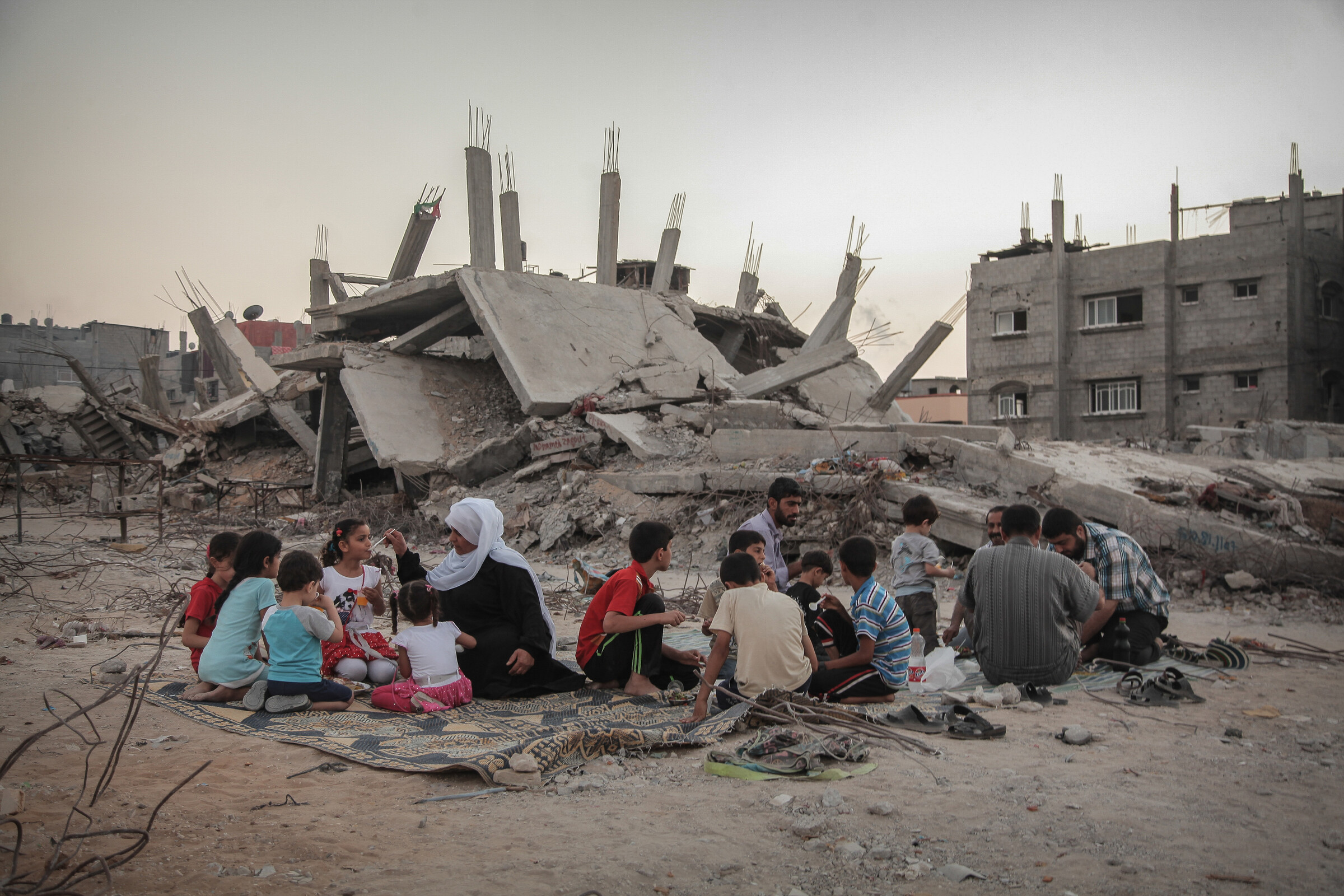The impending humanitarian catastrophe in Gaza

This is MAP’s very telling photo of children in Gaza nervously exploring the broken fragments of housing. No date, place in Gaza or photographer’s credit given.
On 10-year anniversary of the Gaza blockade, MAP urges action to prevent humanitarian collapse
MAP press release
June 14, 2017
On the 10-year anniversary of Israel’s tightening of its blockade and closure on Gaza, Medical Aid for Palestinians has today warned that the humanitarian situation for 2 million people is further deteriorating.
A decade of closure has devastated the economy and infrastructure in Gaza, leaving 42% of adults unemployed and 80% of people dependent on some form of humanitarian assistance. This period has witnessed three major military offensives which have caused massive loss of life, internal displacement, and damage to Gaza’s ailing health infrastructure. Rebuilding from these assaults has been slowed by Israel’s restrictions on the entry of building materials.
With very limited exit via the crossings with Israel and Egypt, the population in Gaza is imprisoned.
A deepening of the crisis in electricity and fuel supply means that hospitals have had to cut all but the most critical services. Essential supplies are dwindling, with 34% of medicines and 32% of medical disposables at ‘zero stock’, meaning less than a month’s supply left on shelves. Only 5% of the water in Gaza is estimated to be drinkable, and 120 million litres raw sewage – untreatable without a more regular electricity supply and infrastructure development – is pumped into the sea each day.
MAP’s Director of Programmes in Gaza, Fikr Shalltoot, said:
“Over the last 10 years of closure, the crisis in Gaza has been unending. It causes severe shortages of cooking gas, fuel, construction materials, medicine and medical disposables, and limits the availability of water at household level and the treatment of sewage. The current acute lack of electricity and fuel for generators is impacting services at hospitals.”
“With very limited exit via the crossings with Israel and Egypt, the population in Gaza are imprisoned. Patients struggle to access treatments which are available outside of Gaza, students are desperate to catch the training opportunities, and even humanitarian workers must justify their movements and submit to the long, bureaucratic permit procedure in order to carry out their duties.”
The closure has been described by both the International Committee of the Red Cross (ICRC) and former-UN Secretary General Ban Ki-moon as “collective punishment”. This closure is just one aspect of Israel’s 50-year occupation of the West Bank, including East Jerusalem, and Gaza. As the occupying power in Gaza, Israel therefore has an obligation to ensure the welfare of the population it controls, including ensuring the adequate provision of health, electricity, water and other basic services.
In 2012, the UN warned that Gaza could be unliveable by 2020. Last month, the ICRC further warned of an impending “systemic collapse” of Gaza’s infrastructure and economy. It is clear that the habitability of Gaza and therefore the lives of its residents are at immediate risk.
The international community must act urgently to prevent a deepening of this crisis and further loss of life. This must include pursuing an end to the separation of the West Bank and Gaza, a lifting of the blockade, and an end to the occupation.
The al-Ejla family sits in front the rubble of their destroyed home in Shujaiya, east of Gaza City, as they break their Ramadan fast earlier this summer [2015, but much of Gaza City, and other towns, is still more rubble than housing]. Photo by Ezz Zanoun.

To help demand health and dignity for Palestinians please click here.
“WE DEMAND HEALTH AND DIGNITY.”
MAP petition
Life under Israel’s military occupation means dealing with constant restrictions to the basic freedoms which should guarantee our health and dignity.
Our day-to-day movement is restricted by checkpoints and permits, we are denied access to adequate healthcare, and we are frequently at risk of being killed or injured in conflict or violent attacks from settlers.
This year marks 50 years of this occupation and 10 years of Israel’s suffocating closure of Gaza.
Health and dignity are not gifts to be earned; they are basic rights. They are not denied to us by natural disaster, but instead by a prolonged, man-made crisis; the longest military occupation in the world today.
International support can help us attain these rights.
The UK Government continues to wield influence on the world stage, and has a historical responsibility towards the rights of Palestinians. It can, and must, support a brighter future for Palestinians based on humanitarian principles and international law.
